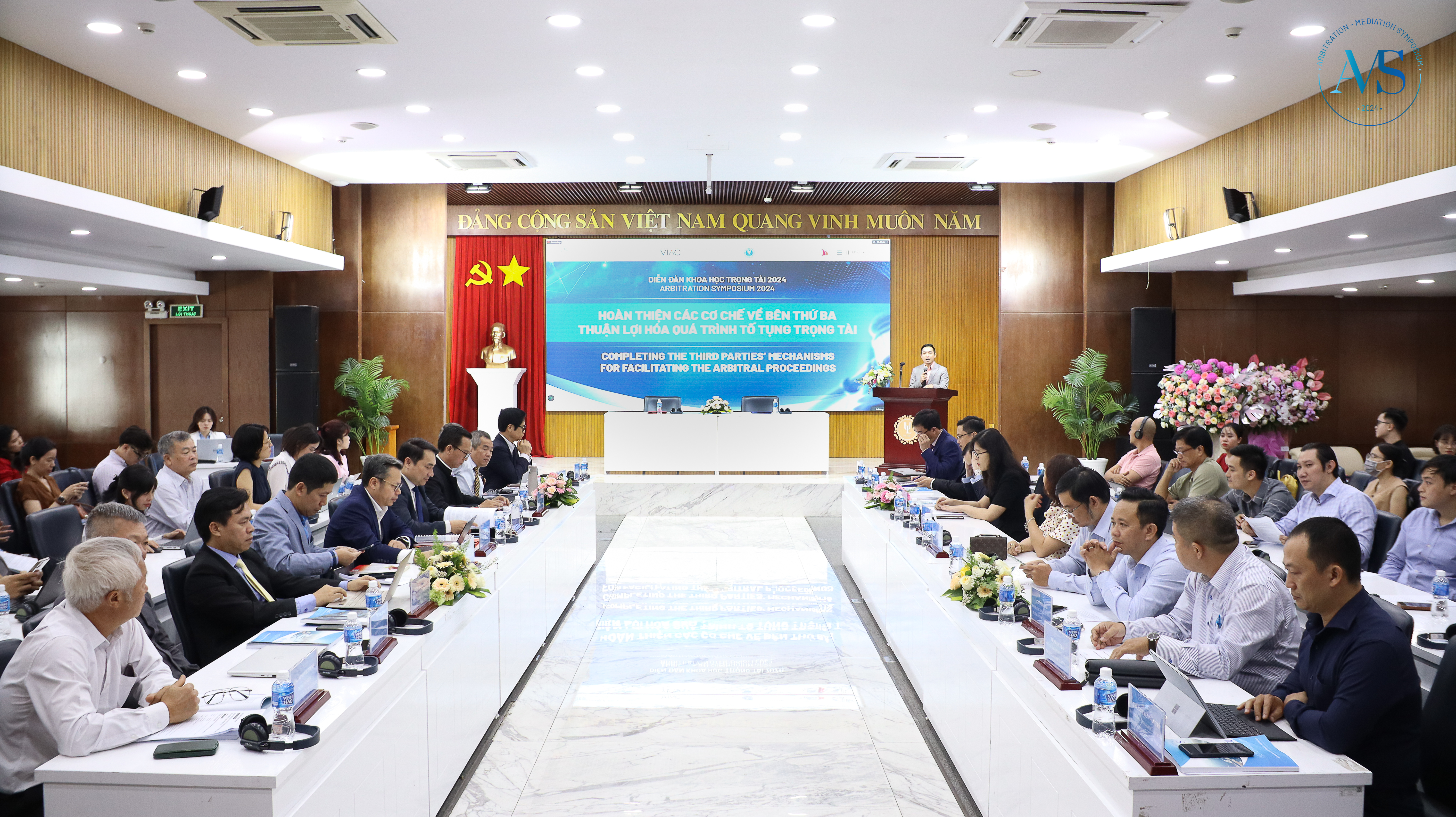
On April 11, 2024, in Ho Chi Minh City, the Vietnam International Arbitration Centre (VIAC) in cooperation with the University of Law Ho Chi Minh City (ULAW) organized the Closing Symposium: Completing the third parties’ mechanisms for facilitating the arbitral proceedings. This was a key event, concluding the Arbitration - Mediation Symposium 2024, with the main theme of “Third parties and influences on arbitral proceedings”. The program brought together many experts, including experienced lawyers and arbitrators in commercial arbitration and broader judiciary, successfully attracting over 200 participants and several media outlets.
In the context of increasing disputes and over 13 years of applying the Law on Commercial Arbitration 2010, there has been recent interest in discussing and analyzing issues concerning parties involved in disputes. It aims to the goal of enhancing the legal framework for arbitration in Vietnam. Recognizing the importance of this topic, the Vietnam International Arbitration Centre (VIAC), within the framework of the Arbitration - Mediation Symposium 2024 (AMS 2024), collaborated with legal institutions, including the University of Law Ho Chi Minh City (ULAW), the School of Law, Economics, Law, and Government (CELG-UEH), and the University of Economics and Law, Vietnam National University Ho Chi Minh City (UEL). Together, they organized three specialized workshops on “Third parties and influences on arbitral proceedings” held weekly on Fridays starting March 22, 2024, attracting over 400 in-person participants and more than 600 online attendees.
Details of the Specialized Workshops
Workshop 01: Interim measures in arbitration and impacts of third parties [Details here] | ||
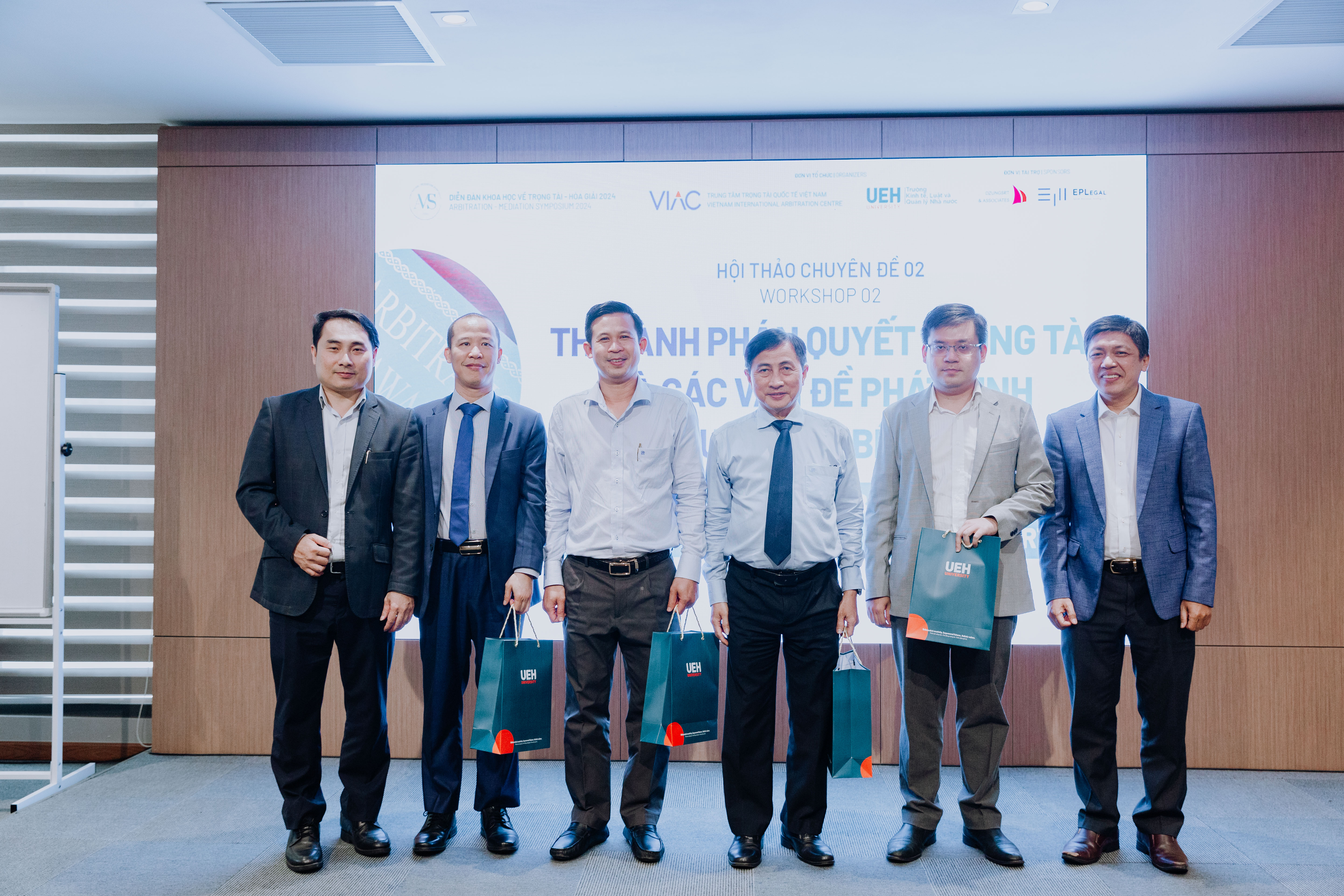 | Workshop 02: The execution of arbitral award and issues arising from the third parties [Details here] | |
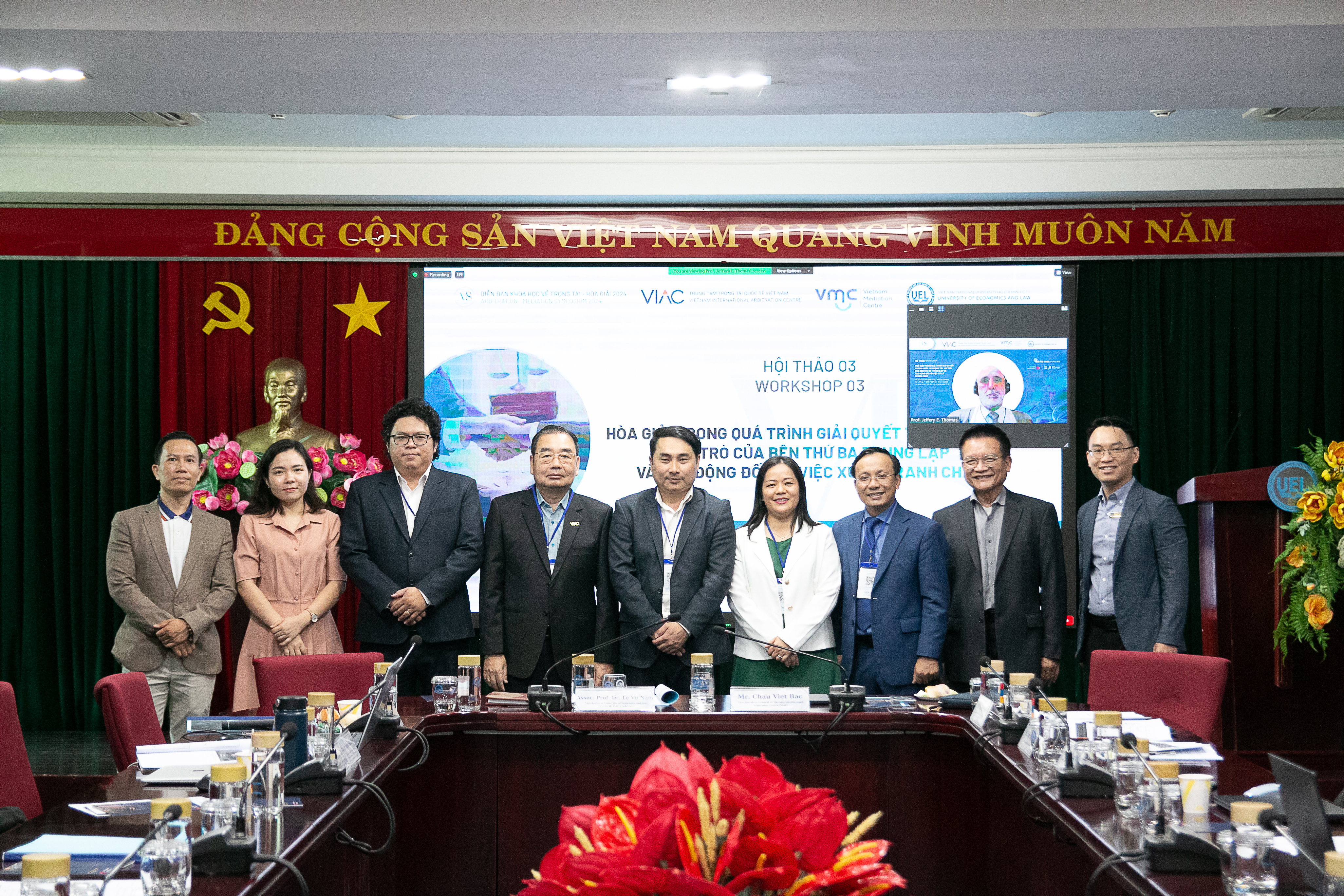 | Workshop 03: Mediation in arbitral proceedings: Neutral third parties’ roles and influences on resolving disputes [Details here] |
To conclude the event series and create an expanded forum for synthesizing and discussing issues raised in the previous three workshops in greater depth, VIAC and ULAW organized the Closing Symposium: Completing the third parties’ mechanisms for facilitating the arbitral proceedings.
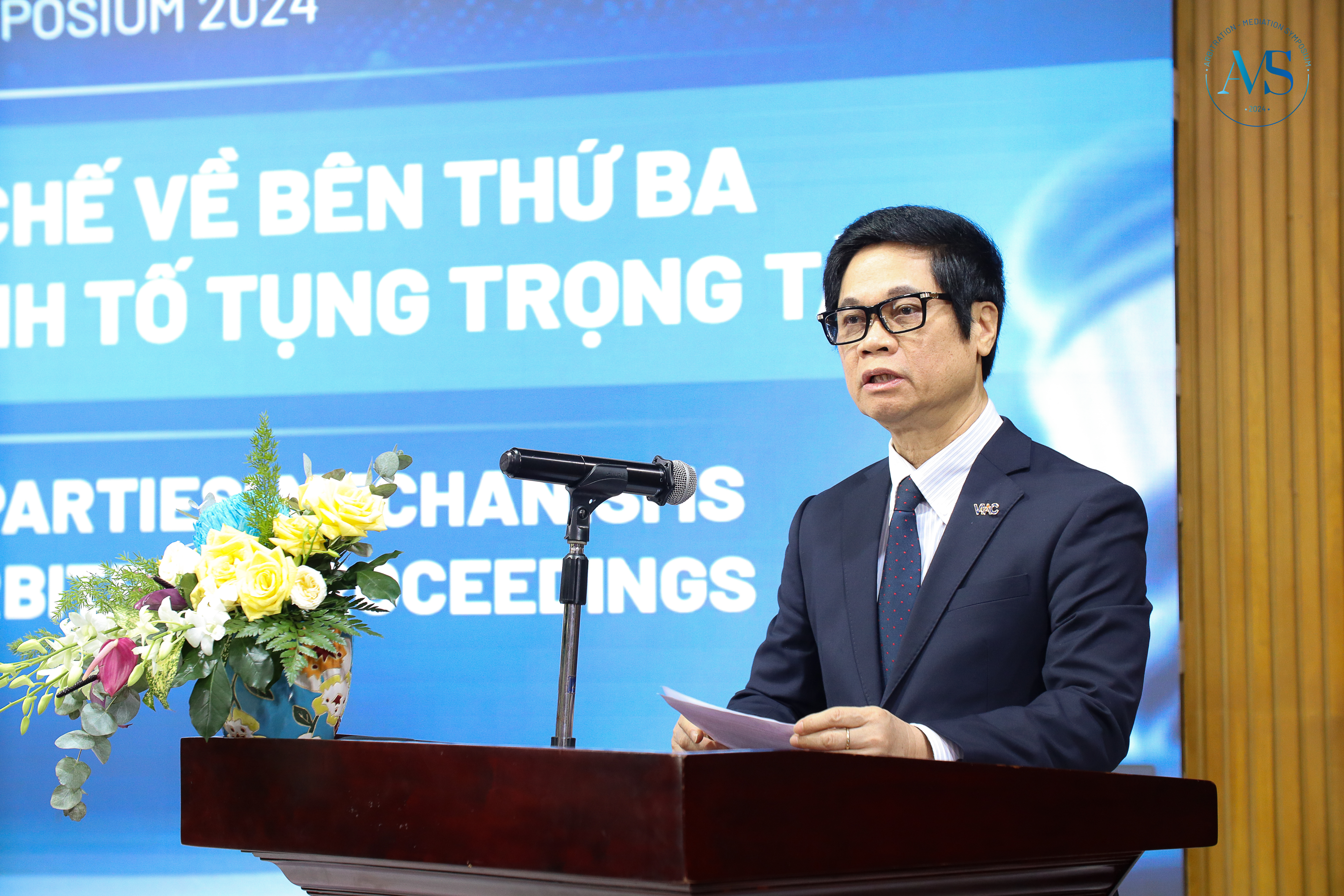
Dr. Vu Tien Loc – Member of the National Assembly, Chairman & President of VIAC
Opening the forum, Dr. Vu Tien Loc, Member of the National Assembly and Chairman & President of VIAC, delivered a welcome address. He pointed out, that along with society’s development and deeper integration into the global economy, business transactions are increasingly complicated, involving diverse parties. The dispute resolution practices at VIAC showed that in 2023, the number and complexity of disputes resolved through arbitration and mediation have increased. In addition to disputing parties, third-party involvement has become more frequent, with varied roles and significant impacts on arbitral proceedings. Recently, the Law on Commercial Arbitration 2010 (LCA 2010) has been reviewed for potential amendments after nearly 14 years of application; however, the provisions on third parties remain underdeveloped. Dr. Loc expressed his hope that the symposium would contribute to advancing the legal reform process and facilitate arbitral proceedings in Vietnam.
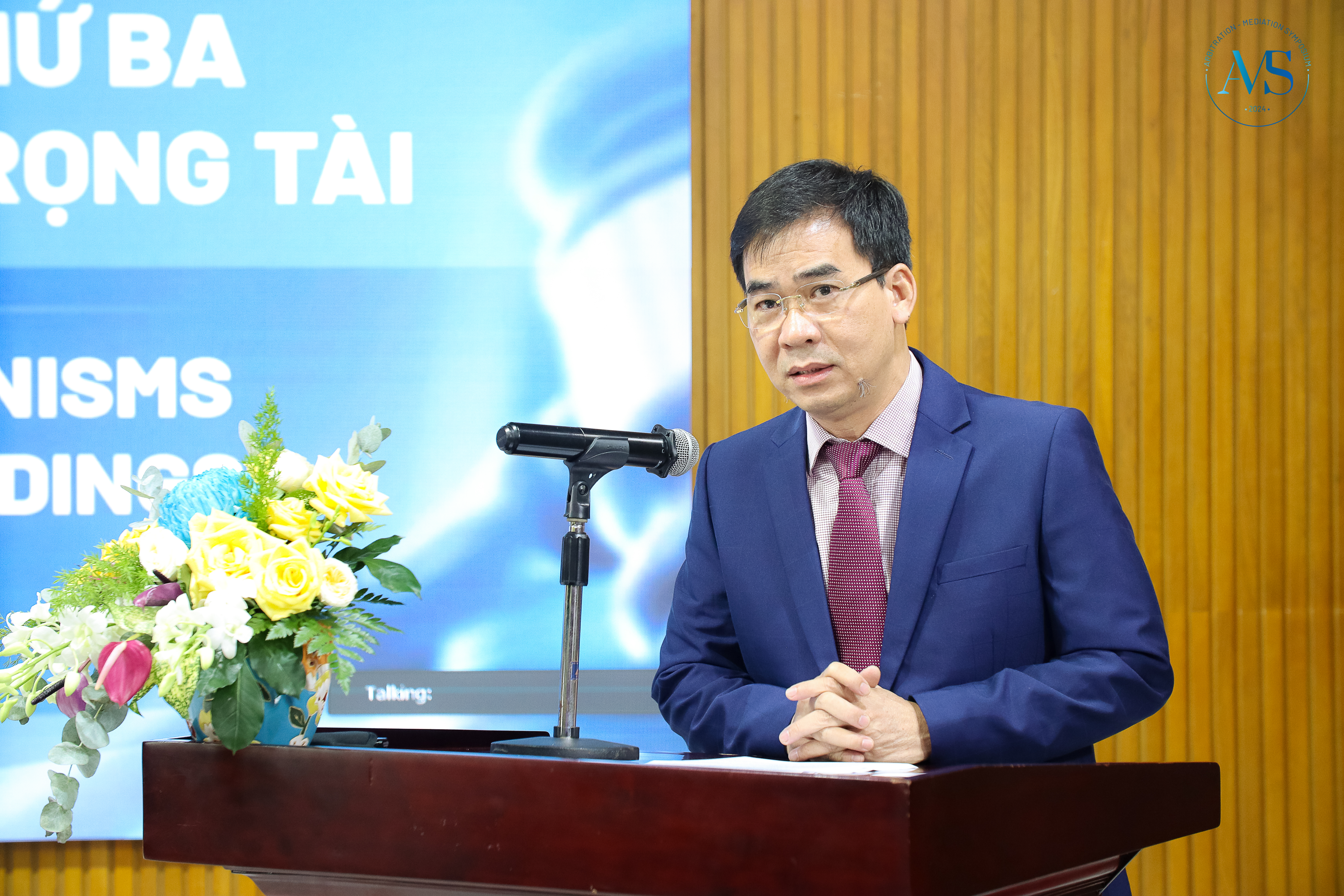
Dr. Le Truong Son – Rector of the University of Law Ho Chi Minh City
Following Dr. Loc’s remarks, Dr. Le Truong Son, Rector of ULAW, emphasized that as a leading law training institution, the University of Law Ho Chi Minh City welcomes the partnership between the two institutions in the AMS 2024 and, specifically, in organizing the Closing Symposium: Completing the third parties’ mechanisms for facilitating the arbitral proceedings. Dr. Son expressed that through research and practical experience, many recommendations have been made to improve third-party mechanisms, and this forum is expected to provide information and create a platform for discussion among experts with long-standing experience in arbitration.

At the forum, VIAC and ULAW signed a cooperation agreement, marking a significant milestone that lays a solid foundation for both organizations to develop programs that leverage their strengths, providing valuable information to lecturers, businesses, and lawyers. The Arbitration - Mediation Symposium 2024: Third parties and influences on arbitral proceedings was conducted as a panel-discussion-flatform, focusing on topics related to the impact of third parties in arbitral proceedings.
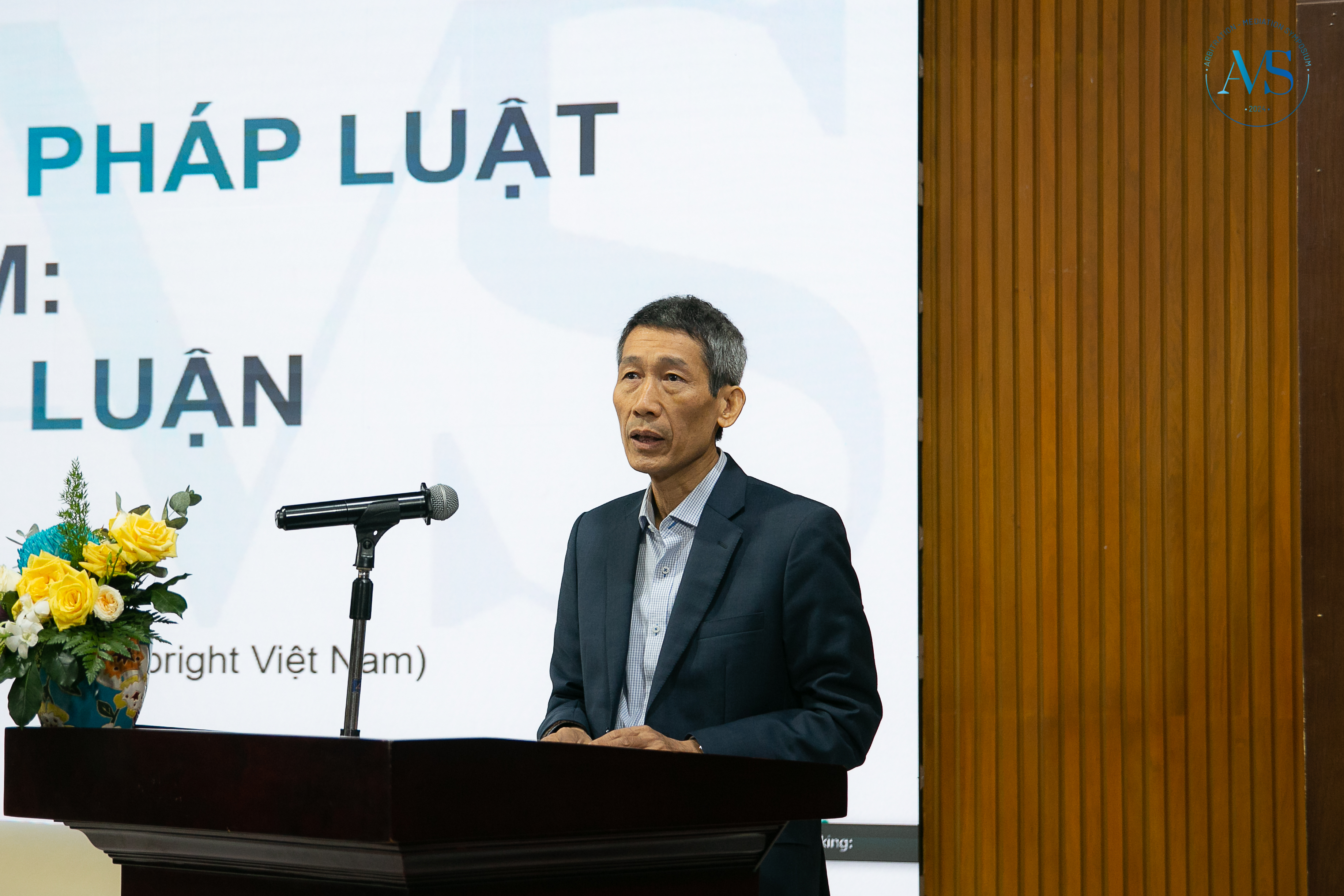
Assoc. Prof. Dr. Pham Duy Nghia – Director of MPP Program, Lecturer at Fulbright School of Public Policy and Management (Fulbright University Vietnam), Arbitrator of VIAC
Assoc. Prof. Dr. Pham Duy Nghia – Director of MPP Program, Lecturer at Fulbright School of Public Policy and Management (Fulbright University Vietnam), Arbitrator of VIAC, began the forum with a keynote titled “Third parties prescribed in arbitration legislation in Vietnam and demands for supplementing mechanisms for the joinder of these persons”. Dr. Nghia noted that in the increasingly complex network of multi-party, multi-faceted societal transactions, a contract often represents only one part of a broader sequence of events. Arbitration, by its nature, is a private, bilateral dispute resolution. The presence of a “third party” creates latent conflicts within arbitral proceedings, thus posing a pressing need for the design of mechanisms addressing third parties to ensure fair and effective arbitration while preserving the fundamental principles of arbitration.
Panel discussion 1: The arbitral proceedings and issues related to “third parties”

The Panel discussion 1, moderated by Assoc. Prof. Dr. Pham Duy Nghia, included insights from specialists such as Mr. Do Quoc Dat, Chief Judge of the Economic Court of the People’s Court of Ho Chi Minh City; Mr. Nguyen Manh Dzung, Director of ADR Vietnam Chambers LLC, Arbitrator at VIAC; and Mr. Nguyen Duy Linh, Partner at VILAF and Arbitrator at VIAC. Discussions highlighted that the involvement of third parties has strong influences on the proceedings, both during and after the arbitration process. Mr. Nguyen Manh Dzung noted that while Vietnam’s LCA 2010 grants arbitral tribunals the authority to verify facts (Article 45), it lacks the theoretical basis seen in the UNCITRAL Model Law for tribunals to investigate third-party facts.
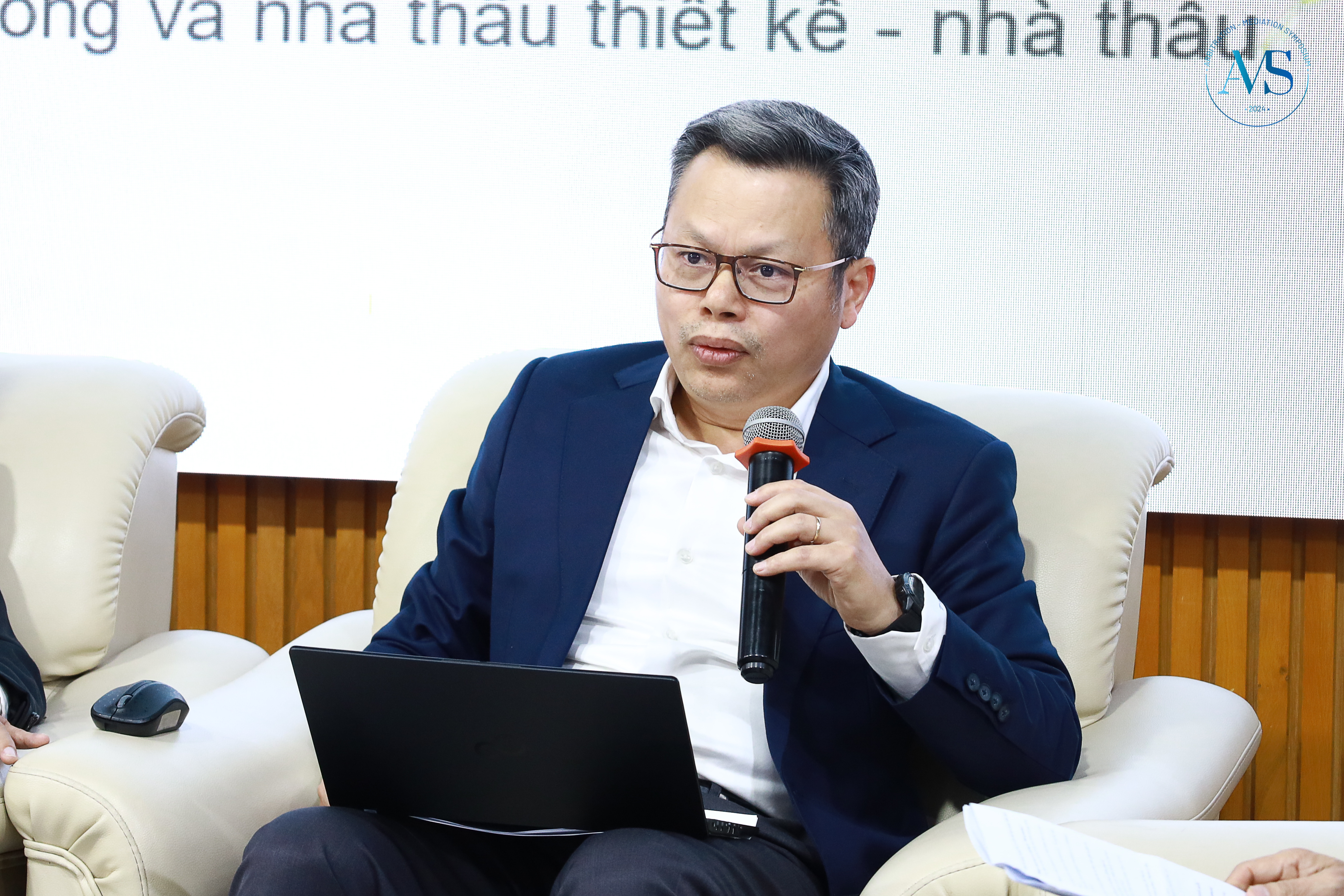
Mr. Nguyen Duy Linh further discussed the role of third parties, providing examples to illustrate the complex relationships between different entities, such as parent companies and subsidiaries or contractors and subcontractors. He emphasized that third-party participation could facilitate more thorough dispute resolution and simplify the enforcement of the arbitral award but noted that Vietnam’s current legal framework limits third-party involvement.
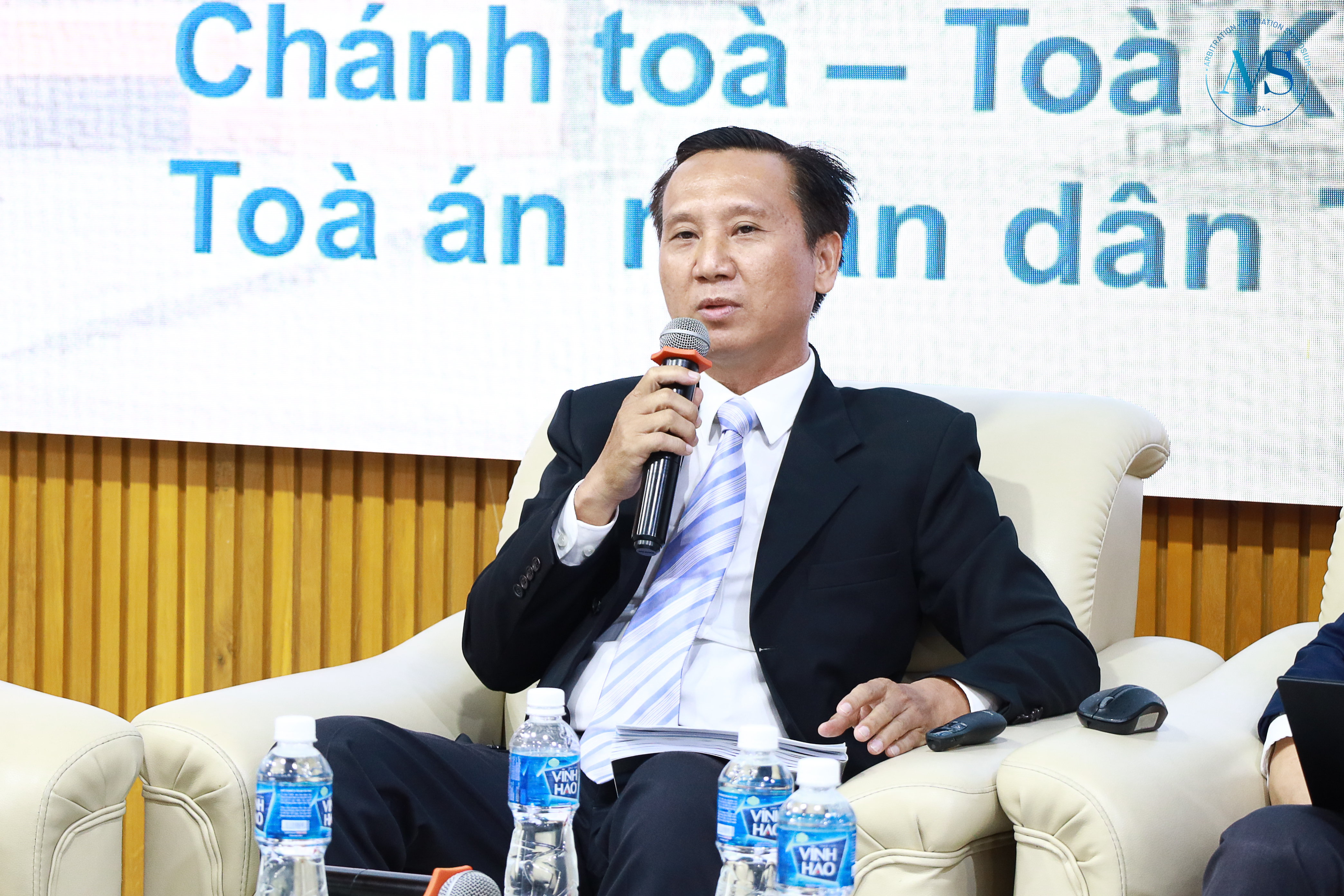
Not only does it play a role in dispute resolution, but a third party can also sometimes be a reason for the annulment of an arbitral award. Mr. Do Quoc Dat shared his perspective as a judge directly handling requests to annul an arbitral award. Mr. Dat noted that Article 68 currently outlines cases in which an arbitral award may be annulled, including instances where the court annuls an arbitral award due to violations of fundamental principles of Vietnamese law. In practice, arbitral awards bind only on the disputing parties; if the award’s content impacts the legitimate rights and interests of a third party, two outcomes are possible: (i) the award may be annulled, or (ii) the award may be unenforceable. Mr. Dat expressed his understanding toward the Arbitral Tribunal, as in reality, the Tribunal may often be unaware that an award could affect a third party if the disputing parties do not provide that information.
Panel discussion 2: Third-party Mechanisms in arbitral proceedings: International experiences and the feasibility of applying in Vietnam
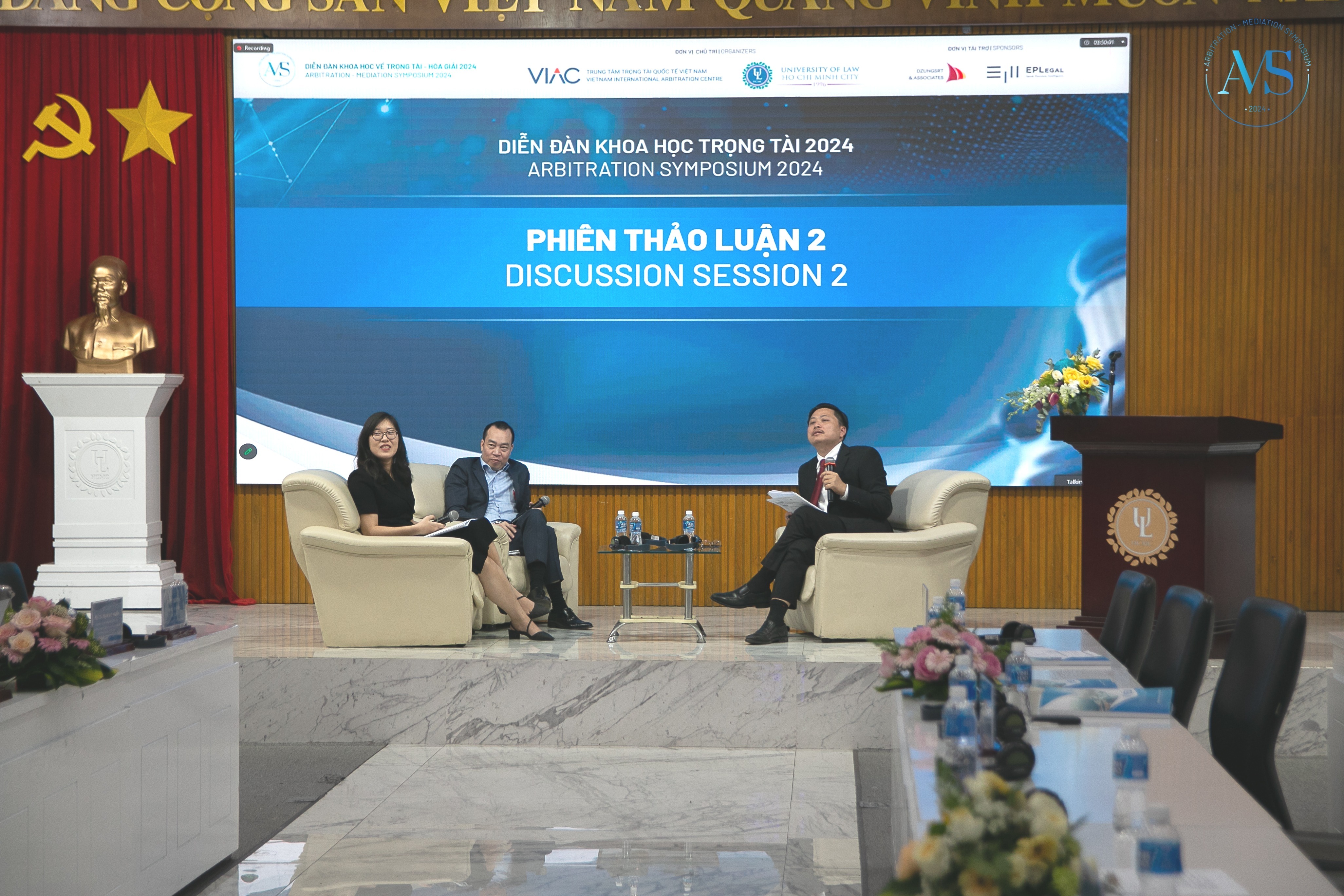
Following Panel discussion 1, Panel discussion 2 of the Symposium focused on issues relating to third parties from the perspective of international law, comparing it with Vietnam’s legal framework and assessing the feasibility of applying these international regulations. To begin Panel discussion 2, Dr. Nguyen Thi Thu Trang – Head of the Arbitration Department at Dzungsrt & Associates LLC – presented an overview on “The advantages and disadvantages of introducing a Third-party mechanism into arbitral proceedings”. Dr. Thu Trang noted that adding a mechanism for third-party involvement could facilitate dispute resolution by making it easier to gather opinions, information, and evidence from such parties, which can improve procedural efficiency. Furthermore, this allowance could help mitigate the risk of an award being annulled or denied being recognized and enforced. However, alongside these benefits, allowing third-party involvement may affect the principle of respecting parties’ agreements, complicating proceedings and potentially reducing arbitration confidentiality.
.png)
Adding to Dr. Thu Trang’s points from an international perspective, Ms. Earl Rivera-Dolera shared insights from international practices, particularly in Singapore, regarding the status and methods of third-party involvement in arbitration. In her sharings, Ms. Dolera provided examples and grounds for supporting third-party participation, especially, a third party may join when referenced by the parties or act as an intermediary within relationships, such as those between agents and principals. Additionally, a third party may be bound by the arbitration agreement or award if its claim is being addressed in arbitration. In other cases, third parties may be considered for participation if dispute resolution institutes apply doctrines like “estoppel” and “veil-piercing/alter ego.” Attorney Dolera emphasized that third-party involvement in contractual relations is crucial and that, at each stage, third-party rights must be carefully considered to avoid affecting arbitral proceedings or the validity of arbitral awards.
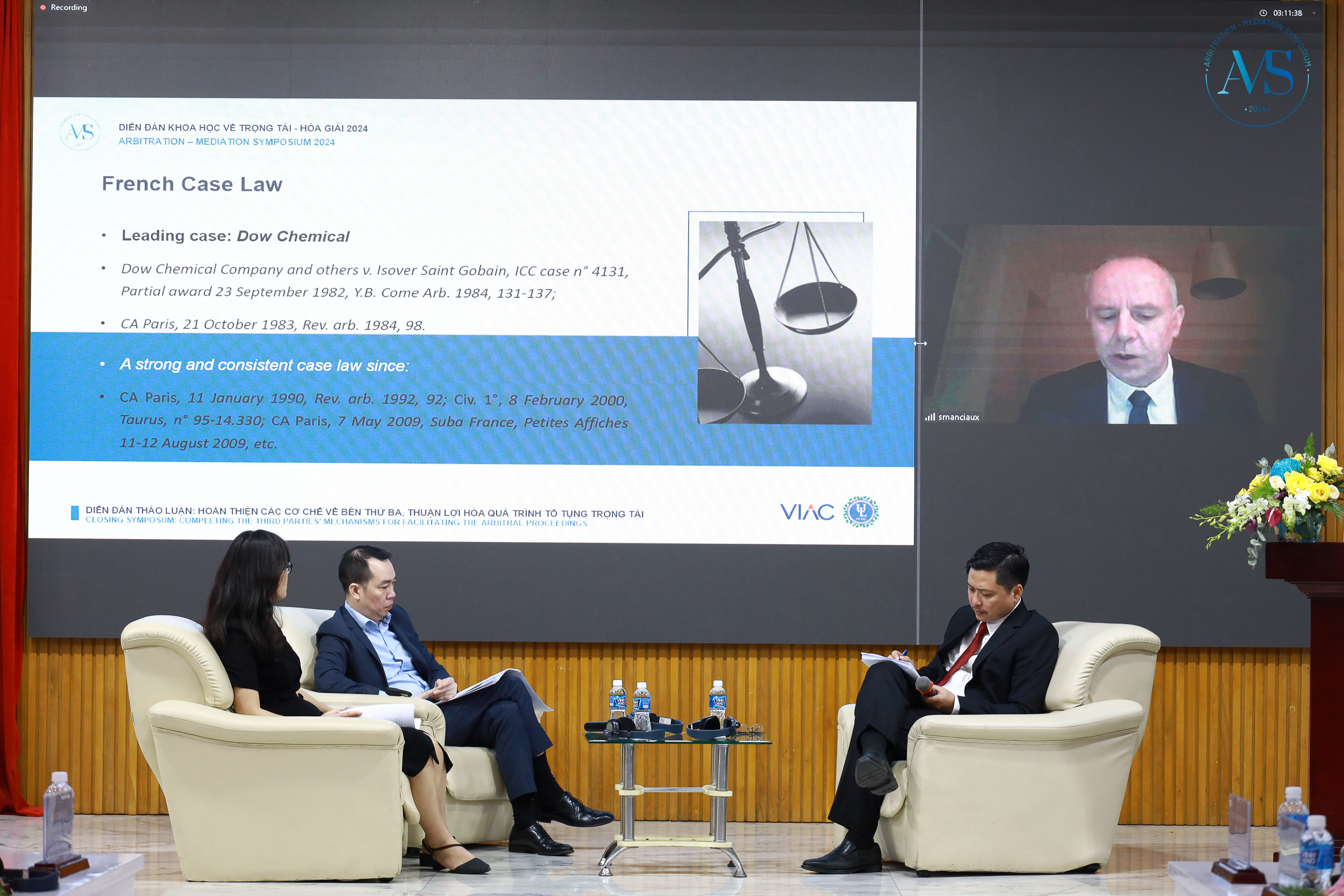
Professor Sebastien Manciaux – Vice Dean of the Faculty of Law, University of Burgundy (Bourgogne), member of CREDIMI (online participation)
From the perspective of French and broader European law, Professor Sebastien Manciaux – Vice Dean of the Faculty of Law at the University of Burgundy (Bourgogne) and a member of CREDIMI – presented an approach regarding the extension of third-party participation rights in arbitral proceedings. Similar to Vietnam, French law binds a party to an arbitration agreement only with its consent. A third party may participate in arbitral proceedings if it is bound by the agreement. Although French law does not have explicit provisions allowing third-party involvement in arbitral proceedings, frequent involvement of such entities in practice has led experts to suggest permitting non-signatory parties to participate in arbitration to a reasonable and effective extent for dispute resolution. While there are concerns that third-party involvement could compromise contractual confidentiality, including that of the arbitration agreement, commentators generally agree that it is necessary based on practical needs. To some extent, extending non-signatory participation could ensure consistency in arbitral decision-making and help avoid parallel proceedings when related parties are involved in the dispute.
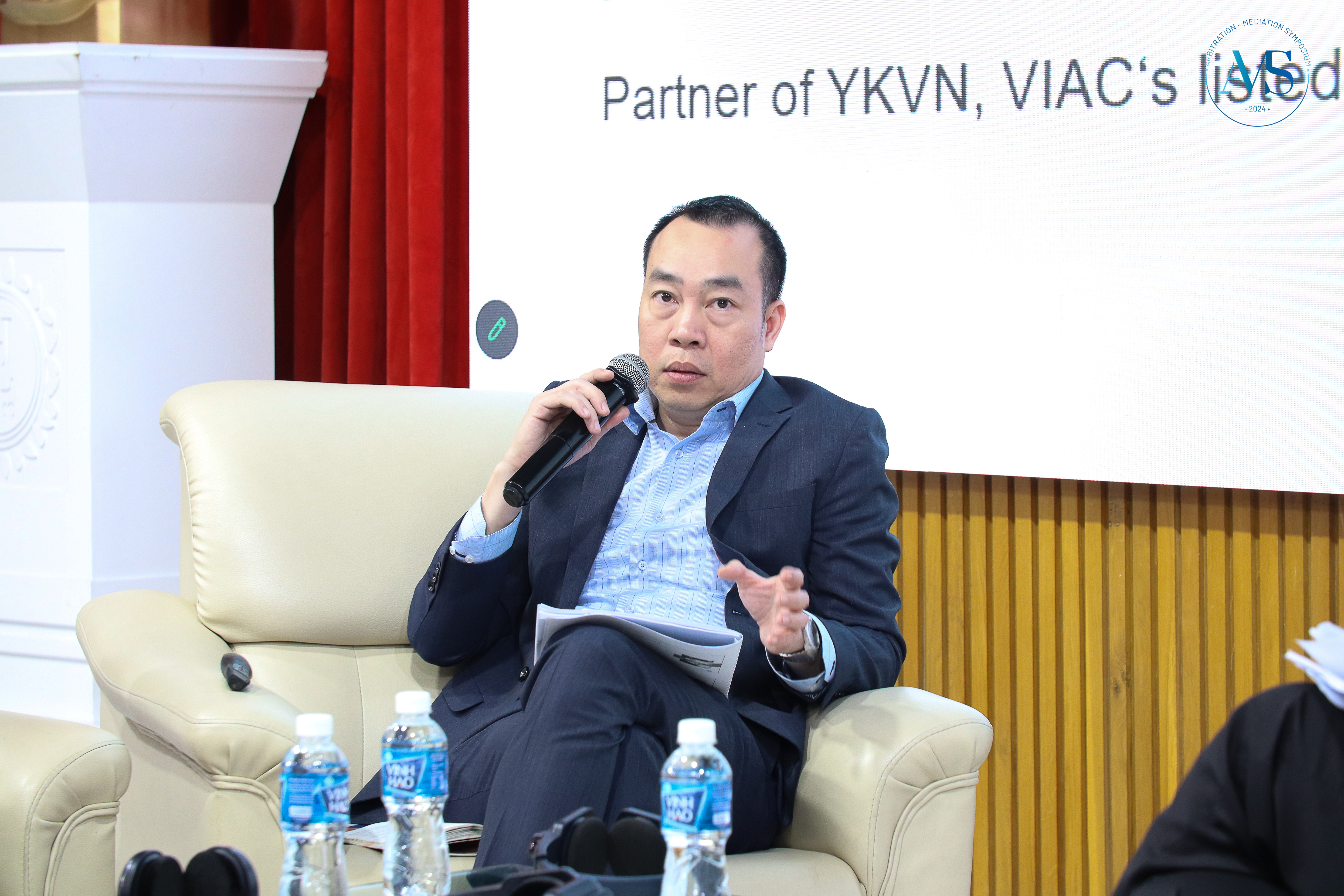
Mr. Do Khoi Nguyen – Partner at YKVN and Arbitrator at VIAC
After listening to international opinions, Mr. Do Khoi Nguyen – Partner at YKVN and Arbitrator at VIAC – compared the regulations on arbitration law in Vietnam and assessed the potential for third-party involvement in arbitral proceedings. Mr. Nguyen referred to Article 5 of the LCA 2010, stating that disputes will be resolved by arbitration if the parties have an agreement (established before or after the dispute arises). The arbitration agreement remains valid for heirs or legal representatives in the event that an individual participating in the arbitration agreement dies or loses their civil capacity; organizations that receive the rights and obligations of another organization that must cease operations, go bankrupt, be dissolved, merged, split, or change their organizational chart. Thus, a third party can participate in arbitral proceedings.
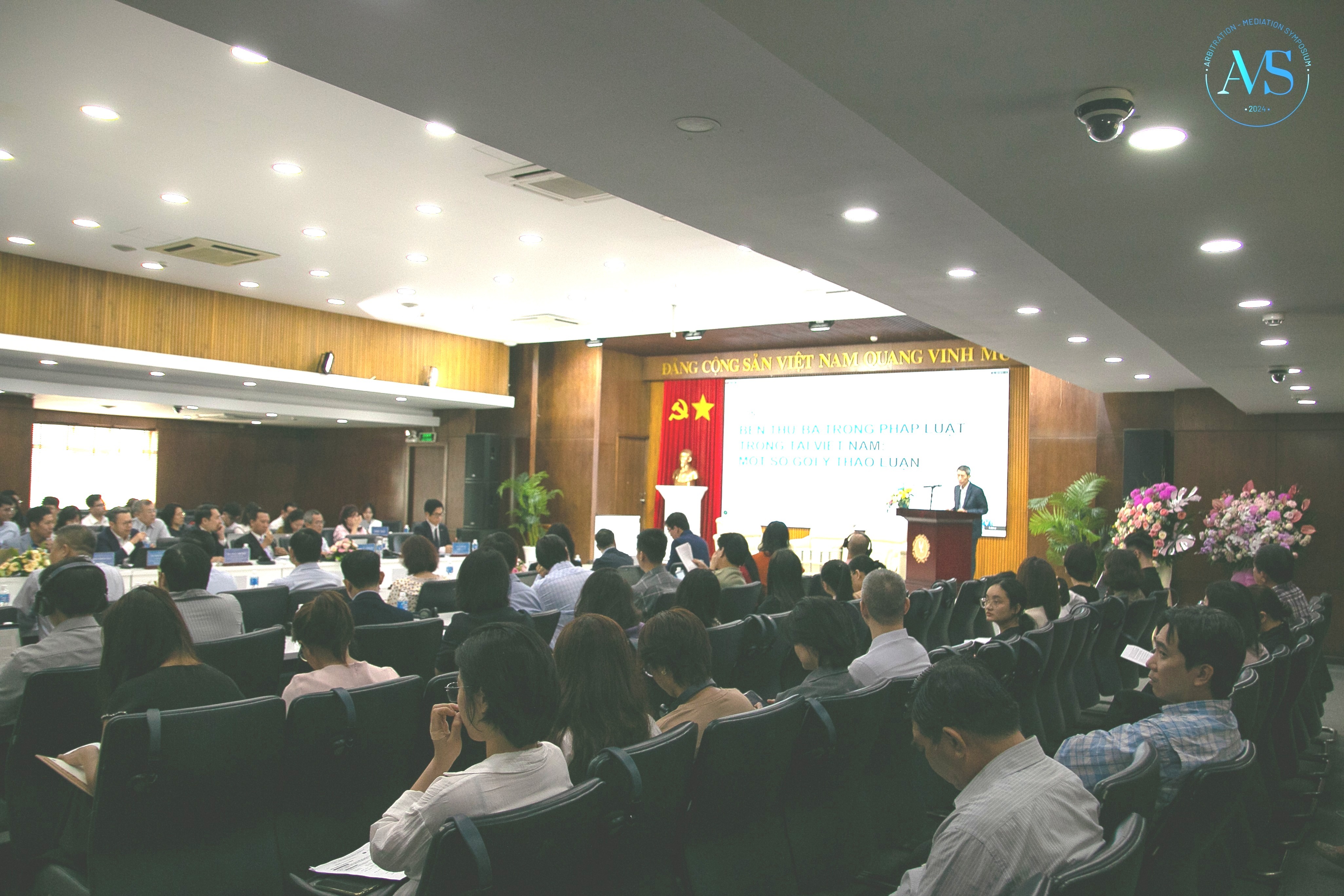
Overview of the forum
The Symposium provided participants with a diverse perspective on arbitral procedural practices, highlighting the advantages and challenges that exist in resolving disputes involving third parties. Through the contributions and insights of experts and attendees, the forum will compile proposals and recommendations and produce a summary report aimed at amending and improving the legal framework for arbitration in Vietnam.
The Closing Symposium: “Completing the third parties’ mechanisms for facilitating the arbitral proceedings” is the prominent event in the 2024 Arbitration - Mediation Symposium 2024: Third parties and influences on arbitral proceedings (AMS 2024), organized by VIAC in collaboration with law universities in Ho Chi Minh City. The series will run from March 22, 2024, to April 11, 2024. For detailed information about AMS 2024, please see HERE.